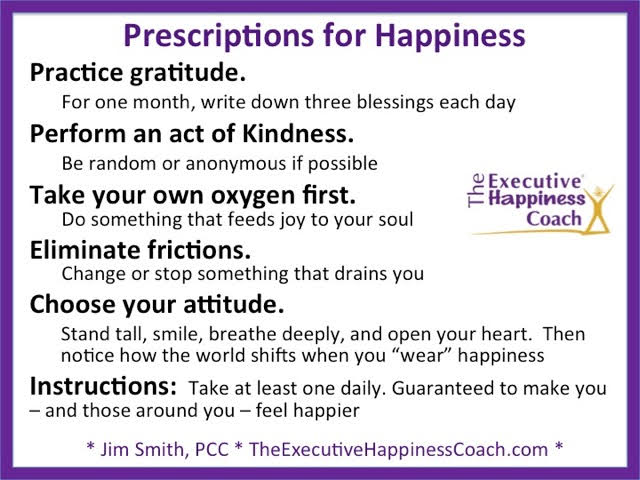Some of my best ideas emerge from challenges posed by my clients. I was recently asked to create a keynote for a client’s All Staff retreat to tie Positivity into their overall theme, Speaking About What Matters. The final product blended my Happiness work with my core teachings on Conversation as Action.
“What if,” I invited the audience, “you were to give as much attention to the mood of your conversations as you do to the language of them?”
Remember that the roots of the word conversation, con and versare mean literally “to turn with” or “to move with.” Conversation is a vehicle to move people, together, and when you are aware of it, that shared movement can include everything from the coordination of action to the alignment of emotional space, vision, and purpose.
Practice is powerful!
Just as you build physical strength by working out, you get better at the emotions and the conversations you most often practice. If you seek more positivity in your work, engage in your conversations with intention. Here are five ideas to overlay your workplace conversations with happiness:
Practice gratitude
To build strength in your “positive emotion muscle,” you must exercise it regularly. The personal version of this is to regularly write down your blessings – positive life events or interactions that occur for you during that day. When you make it a priority to look for the positive in your life, you are more likely to see it as it happens and enjoy it more.
The work version of gratitude-as-conversation is to consider what you appreciate about others, and Actually. Say. It. To. Them. Yes, out loud, in conversation. Or begin meetings by having everyone in the room take 30 seconds to share a piece of good news (personal or professional), and watch how that positive, aligned energy translates into a more productive and engaging meeting.
Perform an act of kindness
When human beings reach out to touch others, we fill our own “buckets” as well as theirs. When applied to conversations, I call the practice, “Don’t be Nice; Be Kind,” where NICE is an acronym for:
Nothing
Inside of me
Cares
Enough to tell you the Truth
When you are a “nice” person, you don’t make waves, you don’t ever make people uncomfortable… including yourself. No risk, no pain; but also no change, right?
The conversational act of Kindness is about saying what needs to be said, where KIND means:
Keen
Insight into your
Needs
Dares me to tell you the Truth
When you are KIND in your conversations, you focus on the other person and what is best for them. Again, remember that good conversation is about moving WITH someone, to a new place.
Take your own oxygen first
When you’re on an airplane and the flight attendants deliver their pre-flight safety talk, they always remind you to put on your oxygen mask first. Why? Because you’re no good to others if your own air supply is cut off. So be positively selfish, and recognize that when you occasionally take time for YOU, you have more capacity to show up for others.
Strive to do something that feeds joy to your soul, even if all you can eke out is five minutes a day or one hour a week: indulge in self-care or exercise, read a book, enjoy a warm bath, meditate, work on a hobby, pray, or spend time with people you enjoy. The energy reserve you build from self-care will help you show up more positively at work and in your conversations with peers and clients.
Eliminate frictions
Regularly examine the loose ends and tolerations in your relationships that drag on you. What are the conversations you regularly avoid? Why is that? What might happen if you screwed up the courage or determination to just say it, give the feedback or offer your idea? Remember that the stories you create are usually worst-case melodramas, whereas real-life experience is typically much easier – not to mention the relief you’ll feel not having to carry around that baggage with you each day.
Choose your attitude
Use the mind-body connection to help you respond differently to the world. Try this: slump your shoulders forward, look down, clench your jaw, and take shallow breaths. How’s that feel? If you “live” in that body, notice what emotions hang out with you most often: anxiety, upset, worry, sadness, perhaps? How does that body show up in conversations? Closed, reactive, glum, maybe as Nervous Nellie/Ned to coworkers.
To shift your attitude, shift to a body in which more positive emotions can reside. Ground your feet, sit or stand tall, look up at the horizon, smile, breathe deeply, and open your heart. Then notice how your conversations shift – and how differently others respond to you — when you “wear” happiness!
Remember, Leadership is not about a title. Anyone can be a Leader who intentionally holds a powerfully positive space for conversations that help others move – together – to a more optimistic and creative space.

